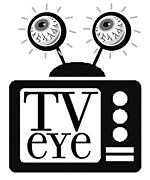TV Eye
Weapon of Mass Description
By Belinda Acosta, Fri., March 28, 2003

There was a peculiar similarity about the Iraqi invasion occurring during the early rounds of the NCAA college basketball playoffs. Both events have players in uniforms. Both events have objectives -- advancing to the final four, advancing to the borders of Baghdad. Both events have cheerleaders -- family and alma mater, newscasters and embedded reporters. Both have diagrams and stats to point out the significance of each move, the key players, and what's at stake, and veterans of past encounters to help sort it all out. But most important, both have money and power at stake. A winning college basketball team is likely to leverage valuable broadcast rights when it comes to getting their games aired in the future. In the new war, does anyone doubt that those 500 or so Iraqi oil wells aren't the real prize to be won in this war?
I've often heard that going into a game, particularly at tournament time, is like going to war. I understood the analogy but always bristled at the comparison. While sports events can turn into shameful brawls on and off the field, wars are obscene. Yet, the images that came across TV screens, particularly of the first heavy bombing assault on Baghdad last Friday, were almost breathtakingly surreal in their beauty. Billowing plumes, flashes of orange light against a midnight-blue sky, spritzes of light that winked then disappeared, followed by a thundering explosion of harvest gold, replayed again and again. The animated descriptions of weaponry with split screens resembling sports trading cards made the war almost seem normal, and worse, palatable.
The use of embedded journalists has been called a brilliant success by the military and journalists alike. The idea is that journalists, planted alongside troops and following strict rules of how and what to report, can give up-to-the-minute reports of how the war is progressing. This is supposed to be a vast improvement over the shutout reporters felt during the previous Gulf War. But viewing "slices of the war," as Secretary of Defense Donald Rumsfeld described it in a Friday briefing, is no different than viewing the slices of reality served up on any reality show from Survivor to Joe Millionaire. This backstage pass implies that a deeper level of understanding of what is happening is taking place. But even as the barrage of images and informational tidbits crawls across the screen, it seems that information is in short supply.
Where, for example, are the dissenting voices? The common line of late is that since the troops are now in action, dissent should be curtailed in favor of supporting the troops -- as if expressing dissenting views were the same as opposing the troops. Even Bill Maher, whose new HBO series, Real Time With Bill Maher, which airs live on Friday nights, towed the line. In previous weeks, Maher was vociferously opposed to an Iraqi invasion. Now that it's happened, he regarded all those old criticisms as "ancient history" and wanted to talk nice about how the Bush administration is handling the war.
Although Hollywood rewarded Michael Moore with an Oscar for his documentary feature Bowling for Columbine at this week's ceremony, when he began to denounce the Bush administration, he was angrily booed. As the camera panned the nominated stars seated on the main floor of the Kodak Theatre where the Oscar ceremony took place, expressions ranged from deer-in-the-headlights looks to strangely plastic smiles. This was the same group of people who gave a rousing standing ovation to convicted felon Roman Polanski for winning Best Director for The Pianist. Polanski's conviction shouldn't stop him from making films. But isn't there a disconnect about the fact that a man who has been convicted of sexual assault but has avoided doing time for his crime can be celebrated while the Iraqi war is fueled in part by the rhetoric of seeking justice for the evils Saddam Hussein has unleashed upon his own people? Is justice only sought when it's a means to power and domination and ignored when it gets in the way of art?
For as pervasive as television news has been, particularly at the beginning of the Iraqi war, it seems that the more you see, the less you know. Fortunately, it's not the only source of information. The other small screen is the computer, where bloggers and alternative Web sites share Internet space with mainstream news sources. Today, more than ever, it's not only possible, but vitally necessary for all people to be discerning consumers of information. The days of accepting Walter Cronkite, Dan Rather, or any of the other primetime news anchors as the fountain of truth are dead. Citizens need to take responsibility for educating themselves. The future depends on it.








